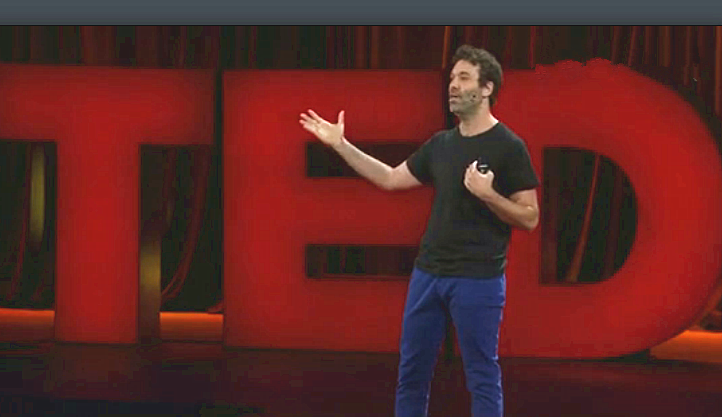(单词翻译:单击)
听力文本
And in the same way many of us are now wearing sensors that detect our heart rate,
同样的方式,我们现在很多人都使用穿戴式侦测器,可以侦测我们的心跳、
our respiration, our genes, on the hopes that this may help us prevent diseases,
呼吸、基因,让我们可以预防疾病的发生,
we can ask whether monitoring and analyzing the words we speak, we tweet, we email, we write,
我们是否已可以藉由侦测分析我们所说的话、推的文、邮寄的信、写的文字,
can tell us ahead of time whether something may go wrong with our minds.
来提前告诉我们,我们的心智可能要发生问题了?
And with Guillermo Cecchi, who has been my brother in this adventure, we took on this task.
我跟我的兄弟,吉列尔莫·切基,扛起了这项任务。
And we did so by analyzing the recorded speech of 34 young people
我们纪录分析了34位年轻人的谈话。
who were at a high risk of developing schizophrenia.
他们过去曾经是罹患精神分裂症的高风险族群。

And so what we did is, we measured speech at day one,
我们测量了他们第一天的谈话,
and then we asked whether the properties of the speech could predict,
然后问计算机,从他们的话中是否可以预测出,
within a window of almost three years, the future development of psychosis.
未来三年内,他们会不会精神错乱。
But despite our hopes, we got failure after failure.
但我们大失所望,一次又一次的失败。
There was just not enough information in semantics to predict the future organization of the mind.
因为没有足够的语义信息来预测未来的心智发展。
It was good enough to distinguish between a group of schizophrenics and a control group,
它在分辨精神病患及控制组上已经有足够的能力,
a bit like we had done for the ancient texts,
因为这有点像我们之前做古文字的分析,
but not to predict the future onset of psychosis.
但没办法预测未来精神错乱的发病。
演讲介绍
从你的的说话方式或者写出来的文字之中就可以预测出你未来的精神状态吗?甚至是精神错乱呢?在这场精彩的演讲中,神经科学家马里阿诺·西格曼,透过古希腊书籍及对内省来源的分析,他发现在我们的话语中可以反映出我们的内心世界,并讲解他如何用文字地图的演算法,预测精神分裂症的发展。


